

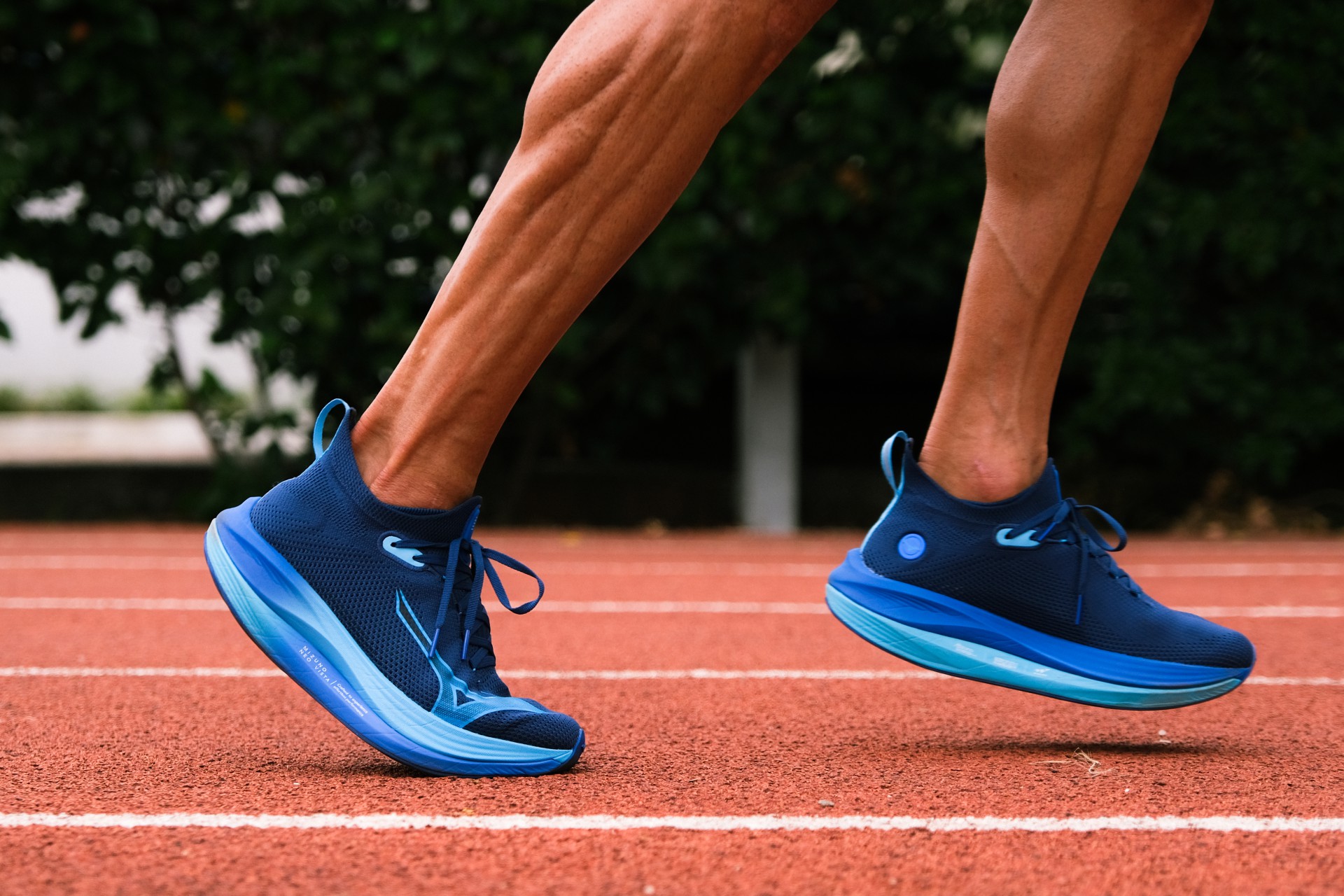
2024-11-26 | By Brazilian Footwear
One of the largest footwear manufacturers in the country, Vulcabras is a company focused on the sports segment, with three brands in its portfolio: Olympikus, Mizuno, and Under Armour. With its own brand, Olympikus, they are revolutionizing the market by introducing highly technological models, such as the Corre Supra, the super sneaker made in Brazil. The footwear company, which has achieved an impressive 16 consecutive quarters of growth, places innovation at the core of its business, alongside its ESG agenda, being certified at the highest level of the Origem Sustentável program, Diamond. We spoke with the group's CEO, Pedro Bartelle, who shared insights about the company's growth, strategies, and his career. Check out the exclusive interview below:
Brazilian Footwear: Tell us a little about the history of Vulcabras
Peter Bartelle: Founded in 1952, with headquarters in Jundiaí (SP), Vulcabras has more than 18 thousand employees divided into five units: in the two manufacturing plants located in Horizonte (CE) and Itapetinga (BA); in the Administrative Center in Jundiaí (SP), in the Distribution Center in Extrema (MG) and in the Research and Development Center, located in Parobé (RS). Abroad, it is present in more than 20 countries, with robust operations mainly in Latin America, where it has 46 exclusive stores in Peru and Chile. The company has three brands in its portfolio: Olympikus, Mizuno and Under Armour.
Brazilian Footwear: About your career in the sector. Tell us a little about your entry into the footwear world.
Bartelle: I started my career in sports and, at the age of 13, I joined motorsport professionally (kart, Formula Ford, Formula Chevrolet and Formula 3), where, twice, I was Brazilian champion (Formula Chevrolet and Formula 3) and South American runner-up in Formula 3. In addition to sports, Motorsport has allowed me the opportunity to be an entrepreneur through the management of my career as an athlete. I was born into a footwear family and have experienced the world of footwear since I was little. From my career as a pilot, I went into business, and the approach to shoes was natural. I opened my first store, a Reebok Outlet, in 1994 and subsequently launched the first sports shoe sales site in Brazil, SiteShoes.
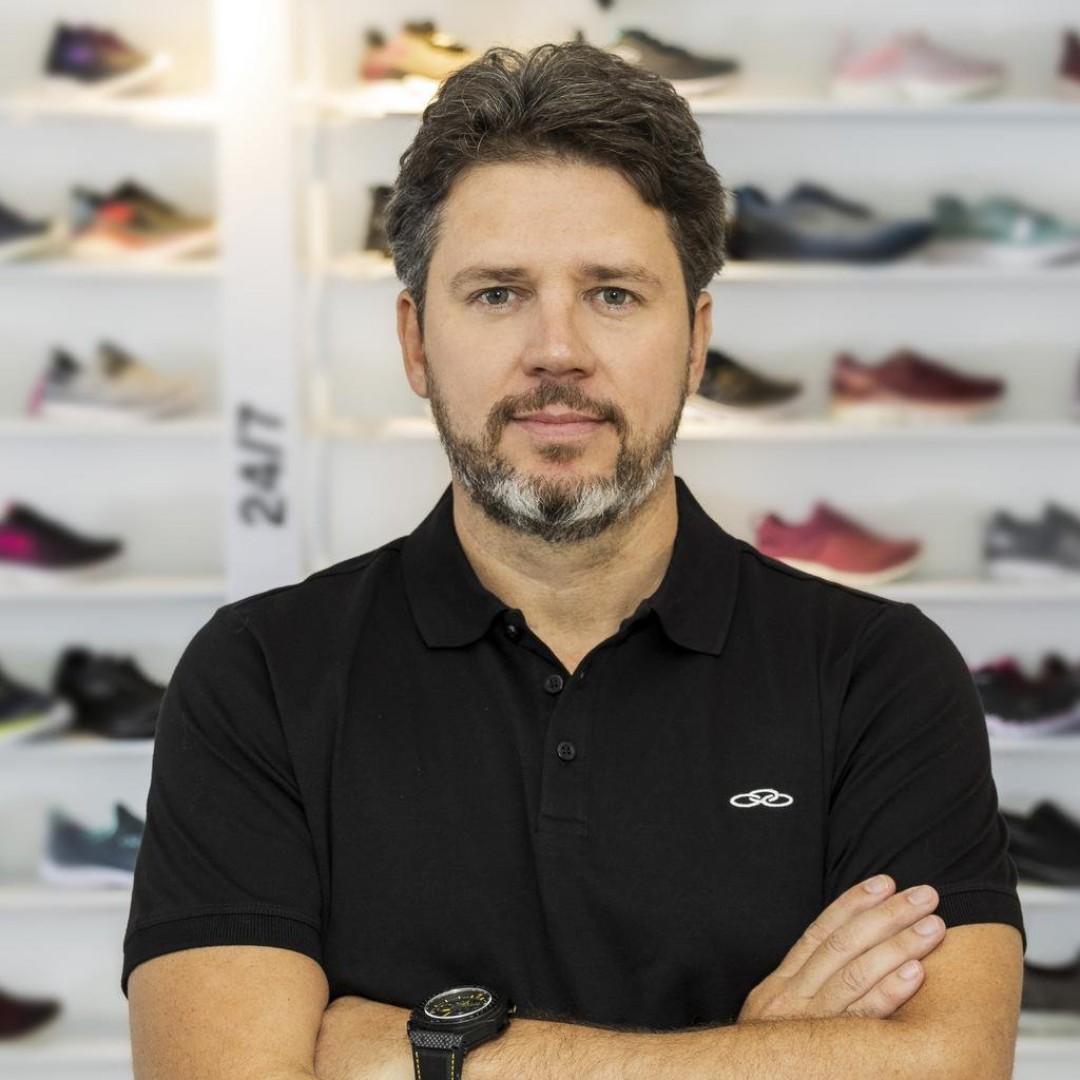
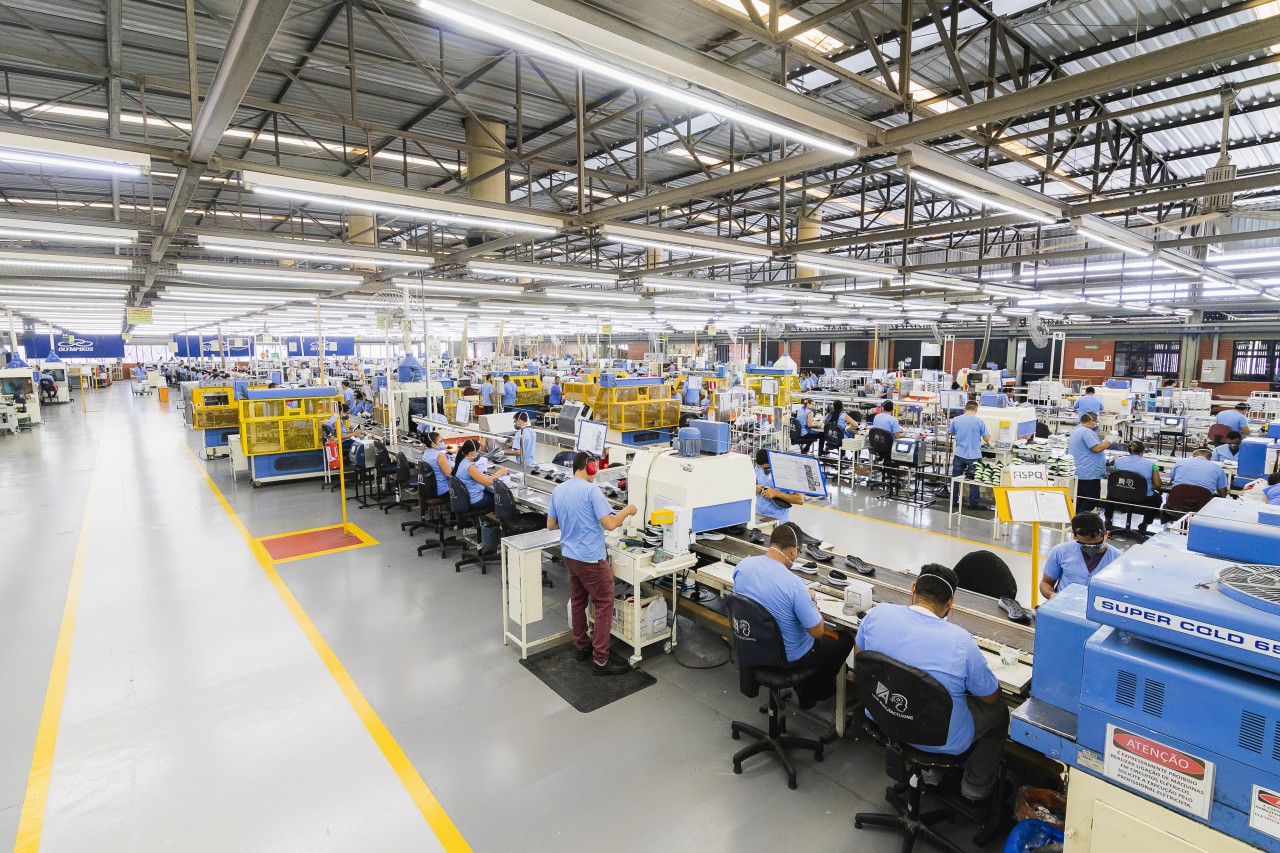
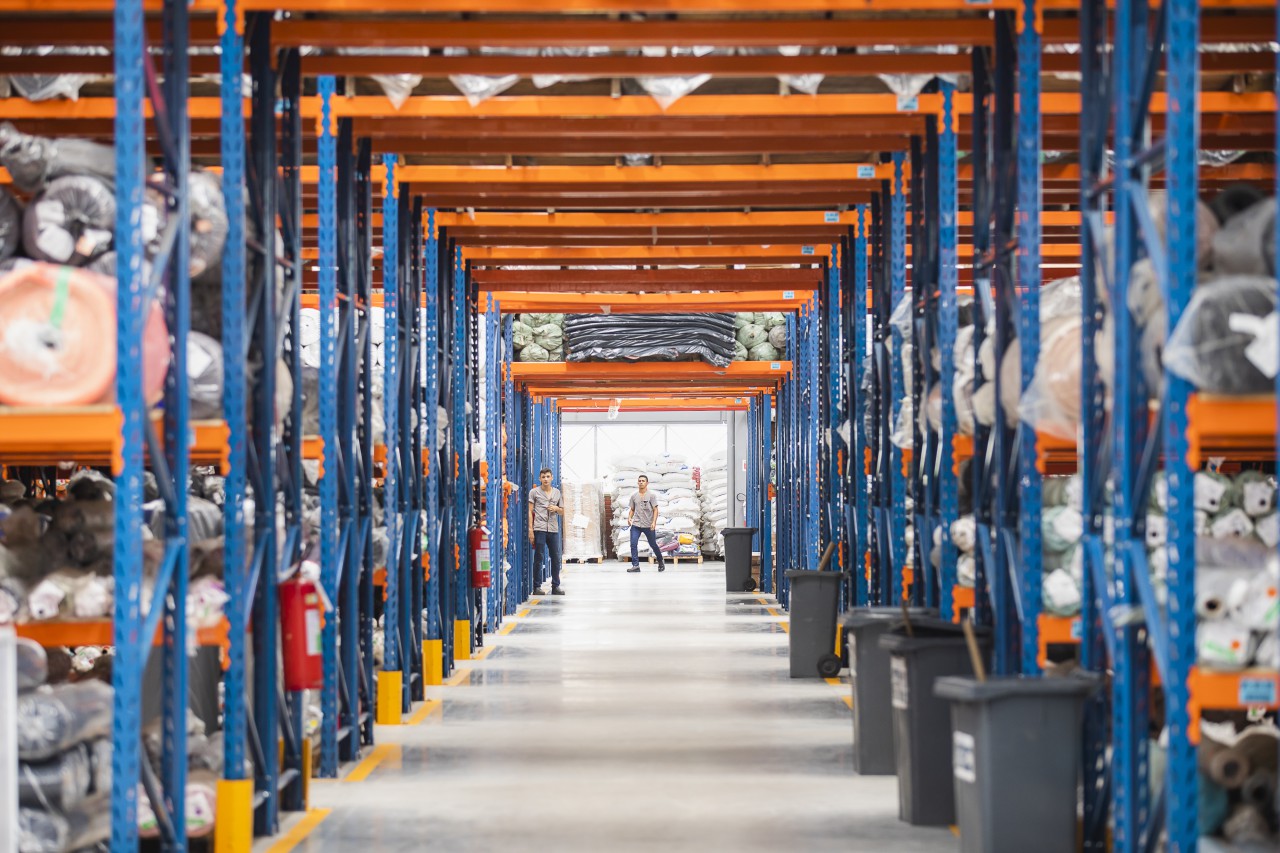
Brazilian Footwear: When did you join Vulcabras?
Bartelle: In 1998, at the age of 22, Vulcabras acquired my Reebok stores, and we began the expansion plan of the brand's direct channel. Over the years I worked in other positions in the company and in 2007 I took over as marketing director. In 2015, as CEO of Vulcabras, I took on the challenge of leading and conducting the company to a new phase of growth, after an operational and financial restructuring between 2012 and 2014, with deep revisions of processes, operating model, management and culture, in favor of the modernization and professionalization of the company.
Brazilian Footwear: How was 2023 for Vulcabras? Was there growth? What was the revenue and production?
Bartelle: After a historic 2023, Vulcabras continues to consolidate the success of its strategy focused on sports and reported in Q2 2024 another quarter of record results. This is the 16th consecutive quarter of growth (quarter on quarter of the previous year), with Net Operating Income (ROL) of R$ 761 million, a growth of 5.1% compared to Q2 2023, which reinforces the resilience of the business, even in the face of a market full of challenges. Currently exports account for about 10% of the total result.
Vulcabras reported at the end of 2023 its best year in history, with robust results throughout all quarters of last year. In the year, the company reported record revenues of R$ 3.2 billion, with growth of 11.5% compared to 2022.
Brazilian Footwear: One of the important achievements of the footwear sector continues to be the antidumping policies applied against Chinese footwear. We know that it is a system that can - and should - be improved, aiming to really create a defense mechanism for the activity. How important is antidumping for Vulcabras?
Bartelle: Antidumping applied to shoes produced in China, was an important breakthrough in the past, but today, in fact, has almost no effect. Most of the sports shoes imported to Brazil have as countries of origin (largely through triangulation) Vietnam and Indonesia. The application of a broader anti-dumping measure, including these countries, would be quite reasonable so that the Brazilian footwear industry can once again compete with Asian footwear on a closer and fairer basis.
Brazilian Footwear: Piracy is a problem for several economic segments, including the shoemaker. How does that affect Vulcabras?
Bartelle: Piracy is a problem that affects Vulcabras and the footwear sector, but mainly affects the consumer, who ends up buying products without assured quality, often with finishing flaws, shape outside of the original standards that result in less durability and safety, increasing the chances of injuries. Internally, Vulcabras works to combat piracy by monitoring the supply of counterfeit products on various websites/social networks, requesting the removal of said ads.
Brazilian Footwear: Vulcabras is certified at the maximum level of the Sustainable Origin Program, Diamond. How important are ESG practices in the company?
Bartelle: The ESG agenda occupies a central pillar on our strategy, as we understand that this agenda brings real return to the business. On the governance side, the company operates in the new B3 market, which consolidates companies with stricter standards of corporate governance and transparency. On the environmental side, our factories are powered by wind energy, a measure that not only reduces our carbon footprint, but also demonstrates our leading role in decarbonizing the industry. With the use of wind energy (since 2022) for shoe production, we will stop emitting 15.6 tons of CO2 for 13 years (initial contract), the equivalent to planting 67 thousand trees.
In addition, we act strongly to reduce waste in our units with circularity as a premise - from product development to production. Of the waste generated in our units, 85% is sold or recovered, and more than 1.5 thousand tons of inputs (plastic, EVA, TPU among other recyclable materials) are reinserted into the company's production process, composing parts of the footwear, which is equivalent to 1.44 thousand tons of CO2 in 2023. Another front of action is the treatment and reuse of effluents with the treatment of 100% of the effluents of the two manufacturing units (Horizonte/CE and Itapetinga/BA). At the Horizonte plant, the effluent is treated and the water is reused for irrigation of green areas, cleaning of common areas and use in bathrooms.
On the social side, Vulcabras supports social projects that bring education and sport to children and teenagers in the regions around its operations. Currently, 13 projects are underway, which will impact more than 1.7 thousand people in 2024. In addition to the social projects, Vulcabras develops a complementary education program, in partnership with Sesi, which offers literacy to factory professionals, training more than 2 thousand students since 2012, and also acts in the training of young apprentices, which prepares more than 1.2 thousand professionals per year for their first job.
Brazilian Footwear: Did the company make investments during 2023? What investments have been made? Is Vulcabras planning investments this year? How much and where will they be allocated?
Bartelle: In the last five years, Vulcabras has invested more than R$ 600 million in expansions, new technologies and innovation, both in the Research & Development Center and in the factories. This move allowed the launch of the Corre Grafeno, by Olympikus, the world's first graphene-based propulsion plate sneakers, which democratized access to propulsion plate products in the national market.
We started 2024 at an accelerated pace, with a new expansion at the Horizonte (CE) plant, our largest production unit, which adds to the more than 90 thousand square meters of production already existing in the unit. With this, we surprised the market with the launch of Olympikus Corre Supra, the first super sneakers made in Brazil, with exclusive and unprecedented carbon fiber plate coated with graphene.
Brazilian Footwear: About BFSHOW, because it is a fair organized by the shoemakers themselves and with full orientation to the desires of the market, the show is considered historic and a breaking point in the model of trade fairs in the country. How were the first two editions for Vulcabras? What are the expectations for the third edition?
Bartelle: Vulcabras understands the importance of positioning Brazil, technology and innovation in the Brazilian footwear sector, and the BFSHOW editions were fundamental to the discussion of the importance of the largest footwear industry outside Asia, one of the most sustainable ones in the world. All the editions in which we participated were positive in the strengthening of relations with the Brazilian and international market and, in November, we will be present again taking all the innovation applied in the development and production of the models of our three brands - Olympikus, Mizuno and Under Armour.
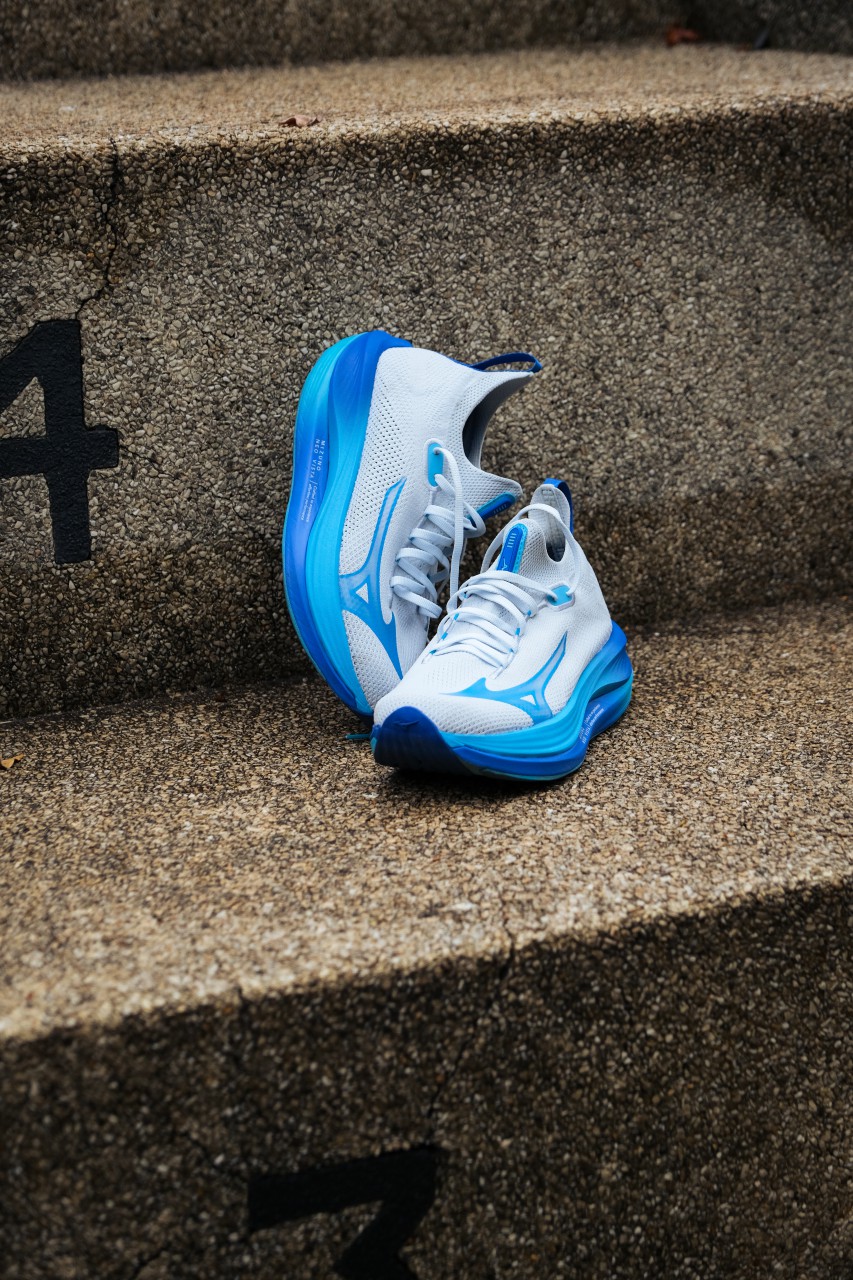
Promote your brand
Contact us to find out how to promote your Brazilian footwear brand on the platform.